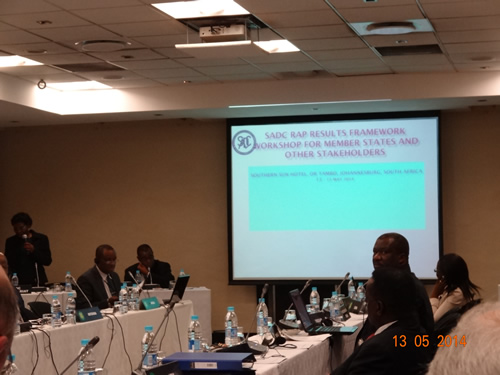SADC seeks to reenergize agriculture sector

22/5/2014
*Civil society demands food sovereignty
The Eastern & Southern Africa Farmers’ Forum (ESAFF) has noted that agriculture is the single most economic sector that can ensure more inclusive economic growth in almost all SADC member states than any other including mining, gas and oil.
Supporting Southern Africa Development Community stakeholders for developing a new vision to reenergize the agriculture sector as the engine for improving economic growth in the region, ESAFF said the drive must be geared towards empowerment of smallholder farmers.
According to the Director of Food, Agriculture, Natural Resources (SADC FANR), Ms Margreth Nyirenda the new vision is in line with the continental Comprehensive Agriculture Development program (CAADP). It was developed in a meeting of key stakeholders in Johannesburg, South Africa recently as a part of Regional Agriculture Policy (RAP).
The policy results framework, is being worked on, and will be presented to a ministerial meeting in June 2014 and thereafter to the Head of States Summit.
Ms. Nyirenda said: “SADC Secretariat would like to see a concrete legally binding document that will ensure accountability and implementation to be adopted by heads of state.”
Chairman of the meeting Mr. Alexander Bulirani said it will be important if one of the indicator shows the target that member states should aim at. He said the 10% budget investment to agriculture and the 6% annual growth are important indicator in line with the Maputo Declaration and the continental CAADP result framework.
Mr. Bulirani was address concerns that budget indicator was not appropriate due to the fact that countries like South Africa would not reach that the benchmarks as agriculture contributes less than 4% of the GDP.
Mr. Joe Mzinga, the ESAFF Coordinator, presented a strong case that 10 per cent budget and 6 percent annual growth for agriculture were valid indicator s of whether member states were according rightful priority to agriculture.
“Spending is a very useful yardstick to show how serious a country in as as far as agriculture development is concerned,” he said. He called for a mechanism to ensure accountability and consistent measuring of progress toward realisation of the targets.
Ms Mamalefetsane Phakoe, chairperson of ESAFF Lesotho called for all efforts to be geared towards food sovereignty. “We don’t need to be food secure when we are not food sovereign,” she said.
Apart from ESAFF, other members of civil society and farmer organisations that were presented at the meeting included SADC CNGO, Oxfam, TCOE, SATUCC, NASFAM, CISANETand Rural Women Assembly.
End






















